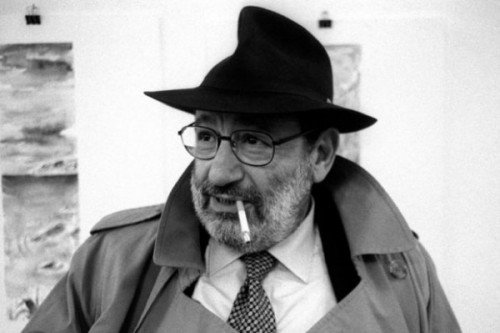The Intellectual Legacy of Umberto Eco: Exploring His Works and Ideas

Umberto Eco was an Italian author, philosopher, and literary critic who is best known for his novel "The Name of the Rose." Born on January 5, 1932, in Alessandria, Italy, Eco studied medieval philosophy and literature at the University of Turin before earning his doctorate in philosophy in 1954.
Eco's work is characterized by his interest in semiotics, the study of signs and symbols. He argued that all forms of communication, including literature, are forms of signs that convey meaning. Eco believed that literature is a way for individuals to communicate with each other and that it reflects the cultural and social values of a society.
Eco's most famous work, "The Name of the Rose," was published in 1980 and was later adapted into a successful film starring Sean Connery. The novel is set in a 14th-century Italian monastery and follows the Franciscan friar William of Baskerville as he investigates a series of murders that occur within the abbey.
"The Name of the Rose" is not only a detective novel but also a meditation on the nature of knowledge, the power of language, and the relationship between faith and reason. The book is filled with references to literature, philosophy, and theology, and Eco's erudition is on full display throughout.
"The Name of the Rose" is a novel written by the Italian author Umberto Eco and published in 1980. It is a historical murder mystery set in an Italian monastery in the 14th century, and it follows the Franciscan friar William of Baskerville and his young apprentice Adso of Melk as they investigate a series of gruesome murders that take place in the abbey.
The book is richly detailed and filled with references to medieval history, philosophy, theology, and literature. Eco's erudition is on full display throughout, and the novel is considered a prime example of postmodern fiction, in which the boundaries between high and low culture are blurred, and the author is self-conscious about the act of storytelling.
At the heart of "The Name of the Rose" is a debate between faith and reason, as William of Baskerville and the abbot of the monastery clash over the role of knowledge in religious belief. The novel also explores the power of language and the ways in which it can be used to manipulate and control people.
"The Name of the Rose" has been translated into many languages and has become a bestseller around the world. It was also adapted into a successful film in 1986, directed by Jean-Jacques Annaud and starring Sean Connery as William of Baskerville.
Eco's novel has been widely praised for its intellectual depth, its historical accuracy, and its engaging plot. It is a masterpiece of postmodern literature and a testament to the enduring power of the written word.
Umberto Eco was a prolific writer and produced many works in a variety of genres. Here are some of his most famous works:
-
"The Name of the Rose" (1980) - a historical murder mystery set in a 14th-century Italian monastery.
-
"Foucault's Pendulum" (1988) - a complex novel that explores the nature of conspiracy theories and the power of the human imagination.
-
"The Prague Cemetery" (2010) - a novel that delves into the world of anti-Semitism and conspiracy theories in 19th-century Europe.
-
"The Island of the Day Before" (1994) - a philosophical novel set in the 17th century that explores themes of love, language, and the search for meaning.
-
"The Mysterious Flame of Queen Loana" (2004) - a novel that follows a man recovering from amnesia and trying to piece together his past through his collection of books and memories.
-
"Kant and the Platypus" (1997) - a collection of essays that explores the relationship between language, meaning, and reality.
-
"Six Walks in the Fictional Woods" (1994) - a collection of essays that examines the art of storytelling and the ways in which writers create meaning through their works.
-
"The Role of the Reader" (1979) - a seminal work of literary criticism that explores the ways in which readers interpret and interact with texts.
These works and many others showcase Eco's deep knowledge of philosophy, literature, history, and semiotics. He was a master of blending intellectual rigor with engaging storytelling, and his works continue to inspire readers around the world.
Eco's other works include "Foucault's Pendulum," "The Prague Cemetery," and "The Island of the Day Before." He was also a prolific essayist and wrote on a wide range of topics, including literature, semiotics, and popular culture.
Eco passed away on February 19, 2016, at the age of 84. His legacy lives on through his many books and essays, which continue to inspire and challenge readers to this day.